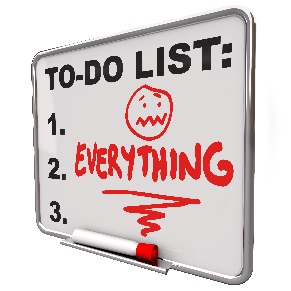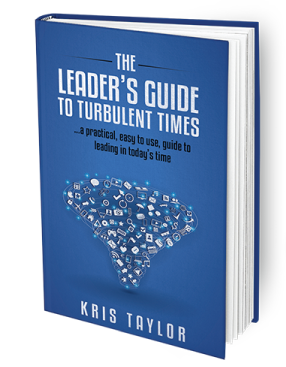
What Your Super Power and Achilles Heel Have in Common
I’m coaching a bright and skilled new entrepreneur. He is smart, capable, and willing to take a risk on his

I’m coaching a bright and skilled new entrepreneur. He is smart, capable, and willing to take a risk on his

I’ve been dreading today. It’s my “eat the frog” day. This is the day I’ve committed to myself to do

Arianna Huffington, co-founder of the Huffington Post and CEO of Thrive Global, once said this about burnout: “In a culture

I’ll fallen for all the false promises around time management. Do this and find 30 more minutes in your day. Manage your calendar and marvel at how much you’ll get done and all the free time you’ll amass.
No matter how faithfully I follow the instructions, I’ve never achieved having any span of time, even 5 minutes, where I marveled at how much time I had “created” in my schedule and then wondered how I might use that time I’d freed up.
The reason is quite simple. We neither “create” time nor “manage” time nor “lose” time. Time is time.
So the question of time management is not outside of us (better planning, calendar tricks, a time saving device) but within us. How efficiently we use our time is within our control.
Discover what I’ve learned about time management, wise self-management, how to move away from busy and start embracing bountiful, and more.
As a leader or someone in a professional occupation, publicly (or even personally) admitting you don’t know something can feel shameful. Publicly admitting “not knowing” is an act of extreme vulnerability that gives up the pretense that we are all knowing.
That’s what we think many times. In truth, it is that act of vulnerability that opens us up for greater connection, learning, and possibility.
Read about three ways that “not knowing” can give you a leadership advantage.

Do you recall Aesop’s fable from your youth – the story of the race between the tortoise and the hare? Of course, any sane person would scoff at the idea of the turtle winning the race. But as the story unfolds, the overconfident hare takes a huge lead, and believing he can never be overtaken by the turtle, gets off the path and takes a nap. We all know how the story ends.
Today, I, like many others, feel the heat of the race. The pressure to do more, go faster, keep up. And we, in spite of exhaustion, sacrifices to our health, and dents to our most valued relationships, try very hard to run as fast as we can.
There are many reasons to slow down when your pace is consuming you or unsustainable, and here, I name ten.

Spending your training and development money well is important. Invest it well and people grow and thrive, as does your organization.
But here’s the hard truth- your investment can be wasted if retention is low and learning transfer is even lower.
That’s why I’ve created five criteria to evaluate your training and development programs that are important whether you develop your workforce from the inside or hire outside experts. Programs that meet this criteria will be good investments and will increase learned skills; programs that don’t aren’t worth your valuable time and energy.

The idea of having less, doing less, and managing less, runs contrary to our consumer-based market economy. Yet as Henry David Thoreau discovered at Walden Pond, it can be a marvelous thing. It can free us up for more important things. To relax. To breathe. To do the things that really matter.
Yet many of us just don’t know what to shed or how to begin. We’ve fine-tuned and socially encouraged our “more” mentality – and spent scant energy on the reverse. So in today’s post I’m providing you some specific thought starters in four categories you might consider shedding. This is not an all-inclusive list, but merely a start. I’m only going to hint at the HOW to do this… but know that you’ll find ample on-line details about purging these items from your life.
I’ve listed four categories you might consider: things, tasks, thoughts, and toxic relationships. For each category, I’ve provided three suggestions. That gives you a starting point of 12 places you might begin to shed. …

I don’t need to tell you that things are busy at work. You know it, feel it, live it. There is more work and fewer people to do the work. Your email box has reached its limit. You are continually asked to go faster. You are connected during work, after work, and perhaps on your vacation. You are bombarded with new information, processes, and industry breakthroughs.
No matter your industry, the story is the same. Restructuring, reorganizations, market changes, technology innovations and globalization have resulted in more work to be done by fewer people in shorter time-frames. As a result, many of us relay on three strategies to manage:
WE GO FASTER
We speed up, sometimes to warp speed. We dash between meetings. We charge through our work and personal life at top speed, barely able some days to catch our breath.
WE HUNKER DOWN
We come in early. We stay late. We eat lunch at our desk. Or we skip lunch. We take work home. We continue to find time wherever we can to squeeze in one more thing.
WE FIND PRODUCTIVITY SHORTCUTS
We multi-task. We automate our inbox. We download new apps and implement new technology. We search for ways to shave minutes, and sometimes seconds, from any “to do” list.
Any of these tactics, in the short term, can work. There are days we need to speed things up a bit. There are periods of time where we just need to hunker down and get through a busy patch. And who does not love to find ways to do routine tasks quicker and easier?
Our problem is that we are in a perpetual state of change, speed, and turbulence. No matter how fast we go, we are unable to go fast enough to outrun it. We can only stretch ourselves so thin until we have nothing more to give. None of these three tactics are sustainable over time, especially when just as we speed up, our world does too. …

I started consulting 14 years ago. It’s not always been easy. Most times I’ve been good, a few times I’ve been mediocre, and on occasion I’ve done great work with my clients. I’ve worked with other consultants, some of whom have been consistently good, some great, and some… not so much. I’ve taught consulting to others – I’ve seen their struggles and their successes, and just how challenging it is to do great work for their clients.
As I aspire to be consistently great, it is helpful to differentiate good from great. Here is how I define the difference…
Fill out the form to receive the Evergreen Leadership newsletter and be notified about new blogs.